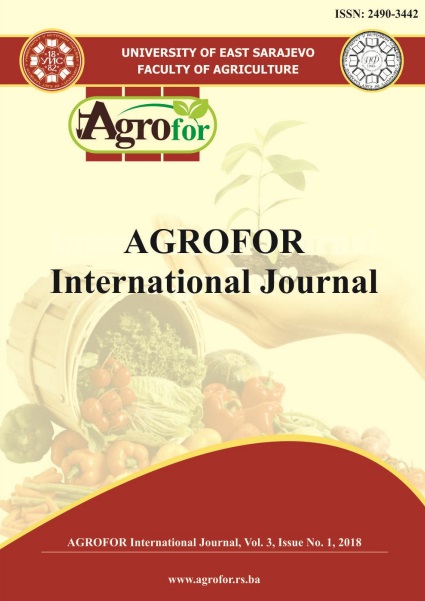IMPACT OF LAND USE ON SOIL WATER CONTENT IN A HILLY RAINFED AGROSYSTEM: A CASE STUDY IN THE CAP BON PENINSULA IN TUNISIA
DOI:
https://doi.org/10.7251/AGRENG1801064MAbstract
Understanding the temporal and spatial variability of soil moisture is fundamental
for improving the management of water and soil resources on rainfed agrosystems.
The present study focused on the soil moisture (SM) patterns observed in a hilly
rainfed agrosystem. We analyzed five datasets from measurement at 15 sites during
various crop growth cycles under the common cereals/legumes/pasture cropping
systems within the Kamech catchment in Tunisia. Results indicated a strong
seasonality in the precipitation and evapotranspiration dynamics that strongly
influences soil moisture patterns, with a strong reduction in the water availability
during summer (average SM = 0.20 m3/m3) as compared to winter (average SM =
0.40 m3/m3). The data of two consecutive years showed that the spatial variability,
expressed through the coefficient of variation of soil moisture, was at its highest
point during spring. The averaged soil moisture of the two years yielded a
reasonable significant linear relation (R²=0.67**), indicating temporal stability of
the spatial pattern. Actual evapotranspiration was found to be the predominant
factor influencing the dynamics of soil moisture.

